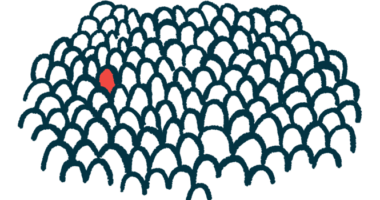Febrile Seizures After Vaccination May Indicate Dravet, Study Shows

Infants who develop febrile seizures a short time after being vaccinated and are positive for a disease-causing mutation in the SCN1A gene should be considered for a diagnosis of Dravet syndrome, a new study shows.
The study, “SCN1A variants in vaccine-related febrile seizures: a prospective study,” was published in the journal Annals of Neurology.
While vaccines have an excellent safety profile and usually only cause mild adverse reactions, some individuals experience more serious adverse events, such as febrile seizures (a convulsion caused by a fever).
Studies have shown that the vast majority of children with a history of febrile seizures develop normally, though some go on to develop diseases such as Dravet syndrome.
Mutations in the SCN1A gene are known to cause Dravet syndrome in at least 80% of cases and the milder syndrome of Genetic Epilepsy with Febrile Seizures plus (GEFS+) in the remaining 20%.
Vaccinations have been implicated in triggering seizures earlier on in children with Dravet syndrome, with a previous study showing that 12 out of a group of 40 children with Dravet syndrome and SCN1A mutations had their first seizure within two days after vaccination.
To date, little is known about the types of mutations that are present in children with vaccine-proximate febrile seizures (VP-FS) — defined as febrile seizure within 48 hours of an inactivated vaccine, or between 5–14 days of a live vaccine or within 14 days of a combination of inactivated and live vaccine.
Therefore, a group of Australian researchers conducted a prospective study to identify the presence and proportion of mutations in the SCN1A gene among infants with VP-FS or non-vaccine proximate febrile seizures (NVP-FS) compared to children who had no history of seizures.
NVP-FS refers to the onset of febrile seizure outside the period defined by VP-FS.
First, the team performed sequencing of the SCN1A gene in 69 children who developed VP-FS, 75 children who developed NVP-FS and 90 children with no history of seizures who were recruited across Australian pediatric hospitals.
Sequencing results indicated that across all 234 children, 90 mutations were identified in the SCN1A gene. Among these 90 mutations, only three were thought to be pathogenic (disease-causing) or likely pathogenic.
Two of the mutations (p.R568X and p.W932R) were in children with VP-FS. Both of these children developed Dravet syndrome. The third pathogenic mutation (p.V947L) was in a child in the NVP-FS group.
The two VP-FS cases developed seizures within 24 hours of being administered their 4-month vaccinations of Infanrix Hexa (vaccine with diphtheria, tetanus, acellular pertussis, hepatitis B, inactivated poliovirus and haemophilus influenza type B), Prevenar13 (pneumococcal conjugate vaccine) and Rotarix (oral live-attenuated rotavirus vaccine).
Both patients had prolonged generalized tonic-clonic seizures, and developed seizures later on that were not vaccine-proximate.
The NVP-FS patient with the p.V947L mutation had his first febrile seizure at 9 months and proceeded to have frequent tonic-clonic seizures. The patient’s diagnosis was febrile seizures plus (FS+).
Lastly, researchers found that, compared to controls, children with febrile seizures were 1.91 times more likely to have the common SCN1A mutation rs6432860-T.
This mutation was first identified in a Danish genome-wide association study as being a risk factor for the development of febrile seizures. Now, these results further confirmed the association of this mutation to febrile seizures outside a Danish population.
“Our prospective study suggests that in an infant with vaccine proximate, prolonged FS [febrile seizures], the detection of a pathogenic SCN1A variant should raise the suspicion of Dravet syndrome,” the researchers said.
“Given that a higher rate of seizures with subsequent vaccinations occurs in Dravet syndrome, screening for SCN1A variants in children 12 months and under with prolonged VP-FS should be considered for early diagnosis and optimal management,” they added.






